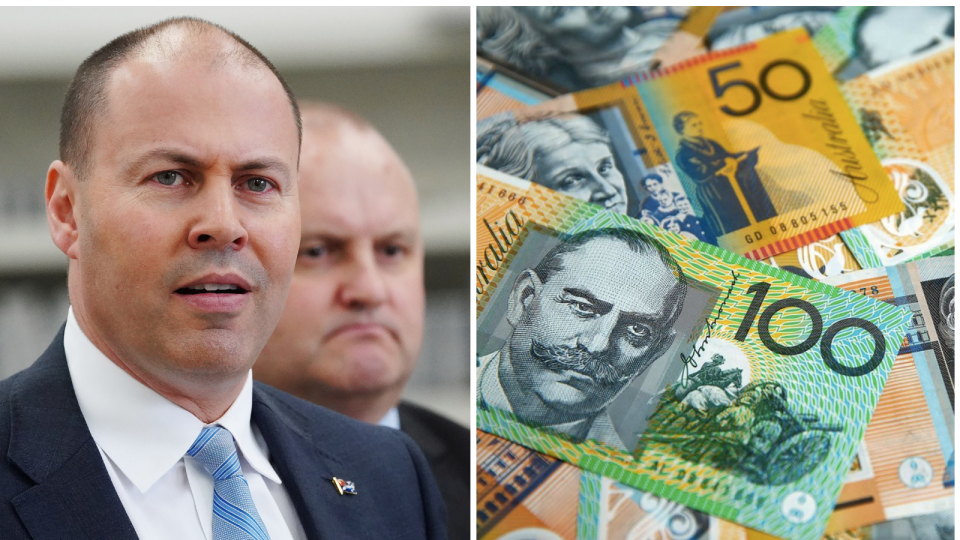Govt's intervention in the banking sector is 'heavy handed'

It’s almost enough to make Cuba’s former Communist leader Fidel Castro blush.
In an extraordinary policy announcement, Treasurer Josh Frydenberg will see the government guarantee money lent to a range of small businesses that the banks currently deem unworthy of loans or are considered too risky to lend to on their own balance sheets.
Like the Communist Party rulers of old, Frydenberg reckons the government knows better than the private sector banks which businesses should get access to the loans. He said that “we [the government] are determined to ensure that small business gets ready access to finance at the lowest possible cost”.
Also read: Three reasons interest rates could fall
Are these businesses credit worthy or not?
Frydenberg noted that “small businesses find it difficult to obtain finance other than on a secured basis” and that that when they get finance, often their “funding costs are higher than they need to be”.
To sober observers and regulators, this very action reflects of the banks acting prudently, not lending money to businesses they judge to have a high risk of failure or default or in offering loans with a ‘high’ interest rate they are pricing risk of default when the loan is assessed as marginal.
It is actually a good thing that the private sector banks, with a bevy of business and risk analysts, are being cautious. At the behest of shareholders and regulators alike, they are deliberately avoiding many of the excesses of imprudent lending with their current approach. Imprudent and reckless lending from the banks was one of the factors a decade ago that sparked the global financial crisis.
If the small businesses were sound enough to get bank credit, they would surely get it.
If there is a problem at the moment with businesses gaining access to loans as Frydenberg notes “at the lowest possible cost”, it is surely because the RBA has interest rates too high. This point has been obvious for several years as inflation has stayed persistently below the bottom of the RBA’s own target.
Also read: Here’s how much you REALLY need to retire
The fact the RBA has steadfastly refused to lower interest rates is a different matte to the one Frydenberg is aiming to address. Easier monetary policy from the RBA would clearly been a boon for the business sector and perhaps he should be redrafting the agreement he has with the RBA over the conduct of monetary policy.
The structure of the government’s proposed loan deal has some of the fund managers salivating at the opportunity to get a government guaranteed investment with a yield well above the traditional government bond yield. This in itself should spark concern about the proposal.
The timing of the policy is also odd.
The government reckons the economy is going well. Ministers frequently cite the 3.4 per cent growth rate in GDP, the 5.0 per cent unemployment, rate and ‘record’ jobs growth as a sign of a strong economy.
Then why does it need to intervene with a strategy that risks taxpayers money and dilutes the triple-A credit of the government if the economy is performing so well?
Aside from times of genuine financial crisis, is it a good idea to have the government intervene in such a heavy handed way in the banking sector?
The experience during the global financial crisis, when the government took on its books around $16 billion of existing securitised loans, was a policy action designed to specifically save the banks from default and failure.
Also read: EU and UK negotiators reach breakthrough on Irish border
Back in 2008 and 2009, these securitised loans already existed and, unlike the Frydenberg plans, were not initiated by the government. The government intervention was addressing the fact these loans were untradeable in capital market and without government action, there would have been defaults that would have meant banks and the economy would have been on its knees with a recession all but inevitable.
The Fryendberg plan is an expensive attempt to throw government money into marginal businesses at a time when prudent policy would demand the government stay well away from such action.
It is likely, that some of the businesses which gain access to this new government money, will fail.
It is unlikely that the owners of those failed business, as well as the tax payer, will look back at this Frydenberg policy thought bubble favourably.
Make your money work with Yahoo Finance’s daily newsletter. Sign up here and stay on top of the latest money, news and tech news.

 Yahoo Finance
Yahoo Finance 